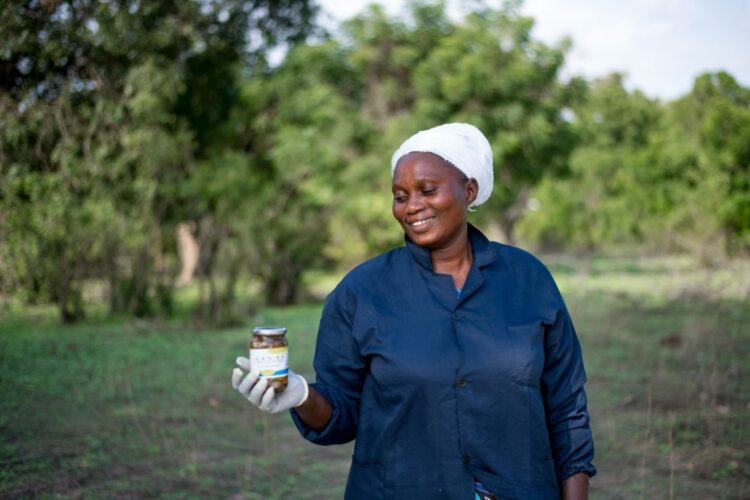Well-oiled agricultural value chains build prosperous rural communities. Why? Because they allow small-scale farmers to make the most of their produce – and because each link along the chain can add value, enabling them to earn more for the final product.
Value chains can be short or long. Take mushrooms, for example. They can be grown, picked, wiped clean, and then sold directly to the consumer. Alternatively, they can be grown, picked, washed, sliced, dehydrated, ground into powder, and baked into a tasty mushroom-flavoured biscuit that is packaged, marketed, and sold in supermarkets both near and far.
But it’s not always smooth sailing. Geography, weather or market failures can prevent goods from reaching consumers, resulting in food and earning losses.
That’s why IFAD works with rural communities to strengthen value chains to overcome these challenges. Here are three ways we do this:
Safe storage, successful farms
Quality milk requires refrigeration throughout the value chain. Without a reliable way to keep milk cool, small-scale farmers in the uplands of Türkiye once earned little for dairy products, preferring to raise their livestock to sell as meat.
But after cooling tanks were installed in 89 villages, a world of new business opportunities opened up.
Unpasteurized milk is now analysed, measured and stored properly before it is sold, protecting its taste, safety – and value. Where a litre of milk once sold for just US$0.25, it can now sell for up to US$0.56.
“We have increased the quality of the milk,” says Erol Akar, the head of a local cooperative. “We knew the potential was there – the future of milk is in this region.”
The road to better livelihoods
Infrastructure is the oil that ensures value chains run smoothly. Roads and vehicles move produce from one stage to another, so profits and livelihoods can often suffer when these are missing – as is usually the case in remote areas.
In rural Tajikistan, a small river was once a big problem for the people of Tuto Village. During flooding, they could no longer safely cross it, meaning many harvested crops never made it to storage, and some livestock would drown.
That all changed when a local union, with support from IFAD, built a bridge. Now, come rain or shine, small-scale farmers can transport their produce and animals safely.
“This bridge is so important,” says Marvori Radjabova, a union member. “It is now easier for us to transport our crops from the fields back to our villages, and we can bring our livestock across without any fear or risk of loss.”
Meanwhile, small-scale dairy farmers in Rwanda’s western Nyabihu district were once only able to transport a limited amount of milk to local collection and storage centres due to the long distances involved.
But with the help of milk collectors known as abacunda, farmers could significantly increase their deliveries – and income. These go-betweens gather milk from 300 small-scale farmers daily and bring it to the centres via motorbike within two hours.
Making it market-ready
Despite a long fishing history, most coastal communities in Indonesia still lack the technology and resources needed to preserve their catch. As a result, over a third of seafood is lost or wasted.
But things are changing thanks to the IFAD-funded Coastal Community Development Project, which trains people to process fish into high-value snacks. One group of women, for example, added US$340 to their monthly income by making fish crackers.
Sweet potato farmer Carolyn Felix has found similar success in rural Nigeria. After training in the VCDP programme, she started processing her sweet potatoes into porridge, snacks, flour, and bread, earning much more from these value-added products.
“VCDP has changed our lives,” says Carolyn. “It has motivated us, increased our knowledge and put food on our tables.”
It’s not just processing that increases a product’s value and shelf life, but packaging. In Senegal, a farmers’ association learned how to grow, process and package oysters so they last longer.
“A tub of dried oysters does not make you much profit,” says association member Marianne Ngong. “Now we see that you earn a lot more by jarring them.”
Strong value chains, strong rural communities
These examples show how oiling each link of the chain improves rural livelihoods and how each link can add value, enabling small-scale farmers to earn more. Strengthening the value chains of local products is key to creating prosperity for individual farmers and entire rural economies.
Article from IFAD

